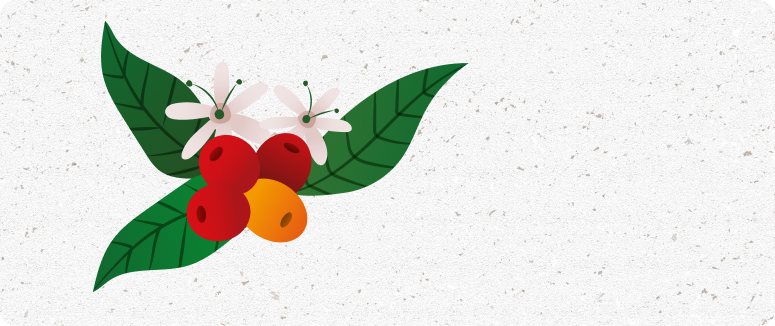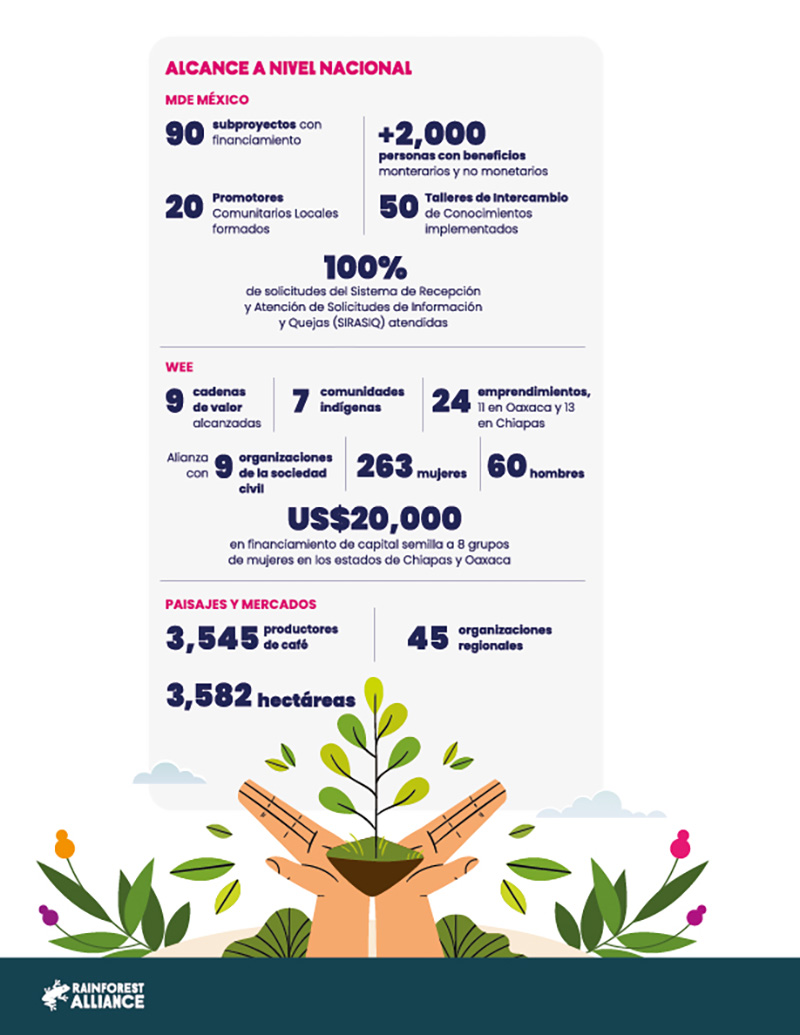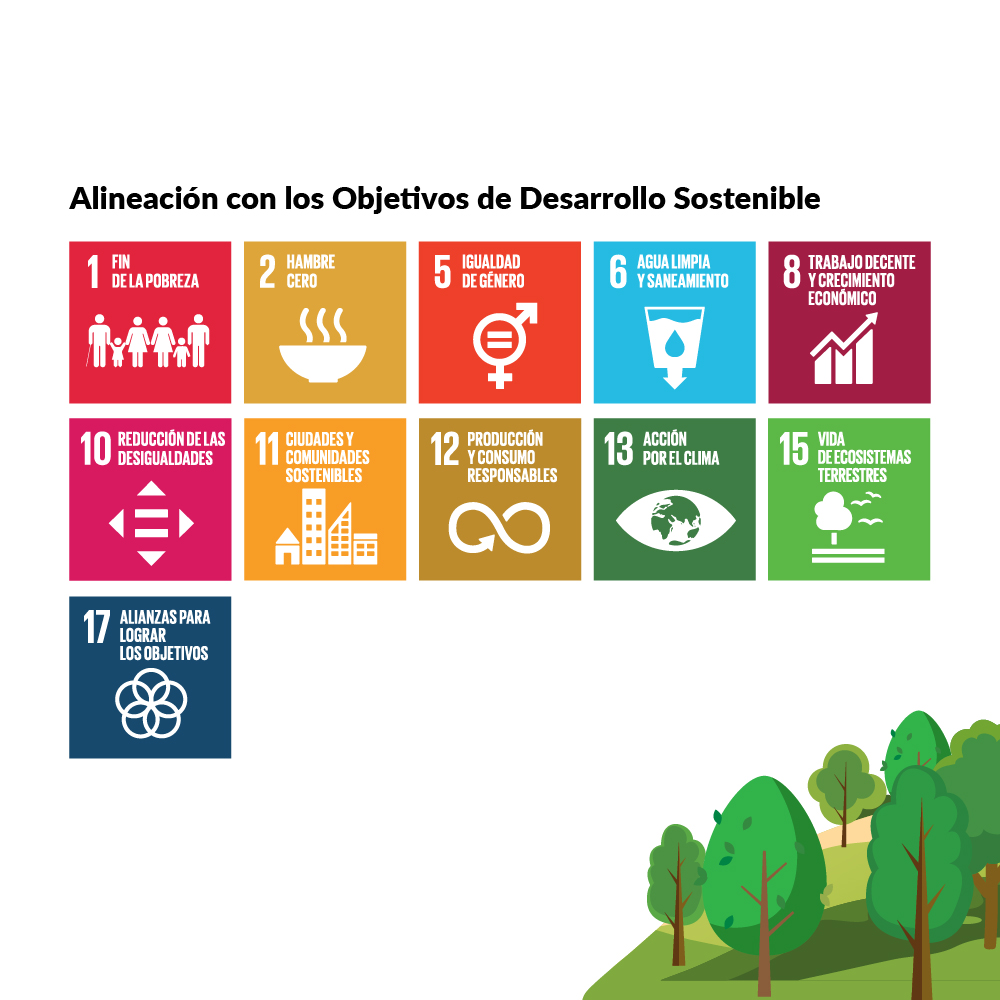DGM Mexico Strengthening the capacity of forest-dependent people to participate in REDD+ related processes and adopt best practices across various productive sectors, aiming to catalyze a transition toward a sustainable, low-carbon rural development model.
WEE: Improve the social, political, and financial conditions of women at both the household and community levels through greater participation in production and the sustainable management of natural resources, made possible by a new business development approach centered on empowerment, self-sufficiency and prosperity.
Reduce deforestation and scale up forest conservation by restoring productive landscapes that are high risk for deforestation and supporting the economic viability of sustainably-managed agricultural and forest products. In parallel, strengthen the resilience of producers in forest and jungle management amid the climate crisis.







